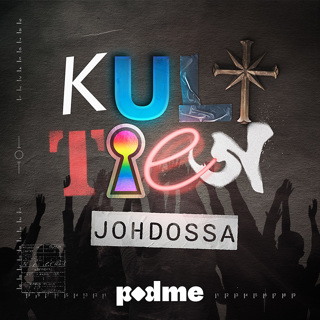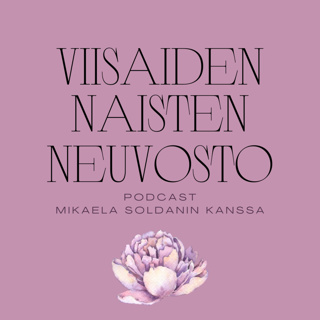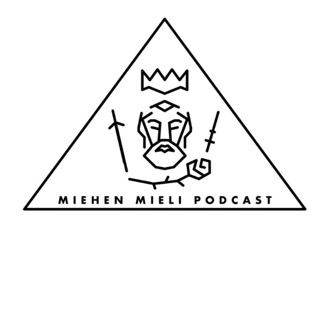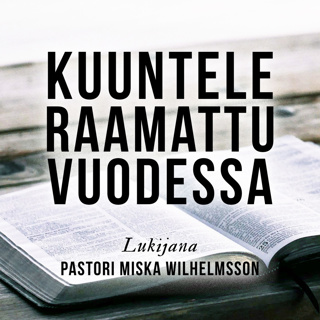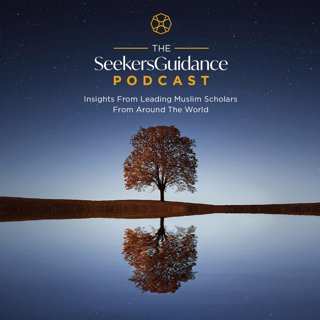
A Synopsis of the Science of ‘Aqeeda Based on al-Hawi al-Qudsi of Qadi Jamaluddeen al-Ghaznawi (Part One) – Mufti Taha Karaan
Since the enlightenment period, belief in God and organized religion has come under significant attack. The unremitting question regarding the compatibility of revelation and reason continues to plague us in current times. Atheism as a “belief” system or worldview is on the rise, and many individuals feel obfuscated and confused amidst the high levels of intellectual scepticism. How should Muslims face and immunized themselves from these ideological challenges? How did our luminous scholars of the past respond to the various intellectual and doctrinal quagmires of their age so that they were able to preserve sound belief in the integrals of Islam? In this lecture, Mufti Taha Karaan succinctly articulates a systematic overview of the various components that contribute to the Islamic science of belief ('aqeeda) and dialectical theology (kalam). By contextualizing the various challenges that historically confronted Islamic doctrine, he provides a lucid methodology in comprehending the integral epistemic avenues that contribute to correct belief in Islam. Biography of Mufti Taha Karaan: Mufti Taha Karaan is a Shafi’i scholar born in Cape Town, South Africa, to a family renowned in both its maternal and paternal lineage for Islamic scholarship. His father, the late Mufti Yusuf Karaan (may Allah have mercy on his soul), was one of the most distinguished Islamic scholars in the Cape. Mufti Taha completed his Qur’anic memorization in one year at the Waterfall Islamic Institute, the oldest Islamic seminary in South Africa. During his stay, he assisted in the editing of the Qur’anic prints that the Institute has become famous for the world over. After finishing four years of the ‘alim course in two years, he journeyed to the Indian sub-continent and Dar al-Uloom Deoband, graduating from there in 1991 with the highest of distinctions, as did his father, in a class of over 700 students. He then travelled to the Middle East and completed a two-year graduate diploma at the Higher Institute for Islamic Studies in Cairo, Egypt. Mufti Taha is the recipient of numerous chains of transmission (ijazaat), from well-respected scholars in India, Pakistan, South Africa, Egypt and Saudi Arabia, among others, in numerous fields of Islamic study. Currently, Mufti Taha is the Mufti of the Muslim Judicial Council. He is a sought-after speaker at Islamic symposia and conferences but attends them sparingly, preferring to spend most of his time at the Islamic seminary, Dar al-Uloom al-Arabiyyah al-Islamiyyah, that he founded in 1996. The educational thrust of the seminary reflects Mufti Taha’s own pioneering vision and commitment to squarely interface with the challenges of the modern age through the twin objectives of preservation and progress. In his teaching, writing and legal verdicts (fatawa), Mufti Taha regularly addresses contemporary issues such as the challenges of post-modernity, feminism, Islamic economics and finance, the old and new Orientalisms, and fiqh issues affecting Diaspora Muslim communities. His students describe him as divinely-gifted with encyclopaedic knowledge; possessed of a near photographic memory; an insatiable bibliophile within the Islamic sciences and without; a teacher that never ceases to inspire; endowed with an elegant calligraphic hand and a penchant for poetry; thoroughly unassuming, pleasant, brilliant and tender-hearted For more SeekersHub podcasts and podcast shows, visit seekersGuidance.org/podcasts. Help SeekersGuidance build a Global Islamic Seminary and spread the light of guidance to millions around the world by supporting us through monthly donation by going to https://seekersguidance.org/donate – your donations are tax deductible in the US and Canada.
3 Heinä 201834min

Muslim Minorities and the Fiqh of Citizenship in the Modern World – Mufti Taha Karaan
In this podcast Mufti Taha Karaan will explain how do Muslim minority communities in various parts of the world create meaningful spaces and environments to flourish as religious communities, and as beneficial members of their societies? The intersection between religious identity and citizenship is a nuanced and complex topic for many Muslims living in Non Muslims countries. Mufti Taha Karaan provides an insightful overview of how Muslim minority communities engaged with the geo political realities of their times in order to consolidate their presence and growth in various locations around the world. By analyzing and discussing the critical topics of migration, citizenship and the preservation of faith, in a coherent historical chronology and context, Mufti Taha Karaan proffers a refreshing and inspirational approach of understanding the Fiqh of Citizenship and Minorities in contemporary times. The Muslim community of South Africa, specifically Cape Town, has a rich and dynamic history which spans more than 300 years. Mufti Taha Karaan proposes that Muslim minority communities around the world should scrupulously analyse how the Muslims of the Cape preserved their faith when confronted with the various challenges of slavery, colonialism and apartheid, and how they succeeded in developing into a vibrant, confident and socially contributing community within South African society. Biography of Mufti Taha Karaan: Mufti Taha Karaan is a Shafi’i scholar born in Cape Town, South Africa, to a family renowned in both its maternal and paternal lineage for Islamic scholarship. His father, the late Mufti Yusuf Karaan (may Allah have mercy on his soul), was one of the most distinguished Islamic scholars in the Cape. Mufti Taha completed his Qur’anic memorization in one year at the Waterfall Islamic Institute, the oldest Islamic seminary in South Africa. During his stay, he assisted in the editing of the Qur’anic prints that the Institute has become famous for the world over. After finishing four years of the ‘alim course in two years, he journeyed to the Indian sub-continent and Dar al-Uloom Deoband, graduating from there in 1991 with the highest of distinctions, as did his father, in a class of over 700 students. He then travelled to the Middle East and completed a two-year graduate diploma at the Higher Institute for Islamic Studies in Cairo, Egypt. Mufti Taha is the recipient of numerous chains of transmission (ijazaat), from well-respected scholars in India, Pakistan, South Africa, Egypt and Saudi Arabia, among others, in numerous fields of Islamic study. Currently, Mufti Taha is the Mufti of the Muslim Judicial Council. He is a sought-after speaker at Islamic symposia and conferences but attends them sparingly, preferring to spend most of his time at the Islamic seminary, Dar al-Uloom al-Arabiyyah al-Islamiyyah, that he founded in 1996. The educational thrust of the seminary reflects Mufti Taha’s own pioneering vision and commitment to squarely interface with the challenges of the modern age through the twin objectives of preservation and progress. In his teaching, writing and legal verdicts (fatawa), Mufti Taha regularly addresses contemporary issues such as the challenges of post-modernity, feminism, Islamic economics and finance, the old and new Orientalisms, and fiqh issues affecting Diaspora Muslim communities. His students describe him as divinely-gifted with encyclopaedic knowledge; possessed of a near photographic memory; an insatiable bibliophile within the Islamic sciences and without; a teacher that never ceases to inspire; endowed with an elegant calligraphic hand and a penchant for poetry; thoroughly unassuming, pleasant, brilliant and tender-hearted. For more SeekersGuidance podcasts and podcast shows, visit seekersguidance.org/podcasts. Help SeekersHub build a Global Islamic Seminary and spread the light of guidance to millions around the world by supporting us through month...
3 Heinä 20181h 1min

Ours Is Not a Caravan of Despair: Joy & Gratitude – Eid Sermon by Shaykh Faraz Rabbani
In this Eid sermon, Shaykh Faraz Rabbani contrasts people who see just this world—a place of sorrow and suffering—with those who see this world as the creating of Allah, a gift, and the first step in an eternal journey. He outlines the Prophetic model of joy and rejoicing, and how to find mercy in hardship: responding by turning to Allah, striving to be a “grateful servant.” Shaykh Faraz exposits how the Prophet was constantly cheerful, as his joy was with Allah. He closes by reminding of the sunnas of smiling and celebration, particularly on Eid. --- This sermon was delivered following the Ramadan 2018 program at SeekersHub Toronto. --- For more SeekersHub podcasts and podcast shows, visit seekersguidance.org/podcasts. Help SeekersHub build a Global Islamic Seminary and spread the light of guidance to millions around the world by supporting us through monthly donation by going to https://seekersguidance.org/donate - your donations are tax deductible in the US and Canada.
16 Kesä 201817min

The True Eid – Ustadh Amjad Tarsin
Ustadh Amjad Tarsin gives some perspective of what Muslims should look forward to at the end of Ramadan. Eid is a celebration of having completed the month of Ramadan in a state of worship, and having drawn closer to Allah. In that sense, every day that passes by where one abstains from sin is Eid. Sayyidina Ali ibn Abi Talib (may God be pleased with him) is reported to have said: "Eid is not merely wearing new garments, Eid is for the one who's worship increases." Ultimately the true Eid celebration for a believer is realized in the hereafter, when they are entered into paradise are in the company of the Prophet Muhammad (peace and blessings be upon him). --- This is part of the series presented in Ramadan 2018 at SeekersHub Toronto: "Branches of Faith: The Virtues and Fruits of Faith". --- For more SeekersHub podcasts and podcast shows, visit seekersguidance.org/podcasts. Help SeekersHub build a Global Islamic Seminary and spread the light of guidance to millions around the world by supporting us through monthly donation by going to https://seekersguidance.org/donate - your donations are tax-deductible in the US and Canada.
13 Kesä 201826min

Lessons From the Battle of Badr – Shaykh Faid Mohammed Said
Shaykh Faid Mohammed Said starts the khutba by explaining how the battle of Badr was a blessing. He goes on to explain how prophetic practice is guidance. The greatest blessing is deen, which is how we implant the teaching of the Messenger of God (peace and blessings be upon him). The battle of Badr has many lessons for those who reflect. Allah grants success to those who call on him. The life of the Prophet Muhammad (peace and blessings be upon him) is timeless learning. For more SeekersHub podcasts and podcast shows, visit seekersguidance.org/podcasts. Help Seekershub build a Global Islamic Seminary and spread the light of guidance to millions around the world by supporting us through monthly donation by going to https://seekersguidance.org/donate – your donations are tax deductible in the US and Canada.
13 Kesä 201823min

Attaining Sabr – Shaykh Faid Mohammmed Said
Shaykh Faid Mohammed Said begins by explaining the name of Allah as-Sabur. Sabr (patience) is the highest of strength and ability. Sabr is at the beginning of the test. Sabr is mentioned over 90 times in the Qur’an. The only way to submit to God is by having sabr. With Sabr one will be rewarded. If one trusts Allah they will have sabr. Shaykh Faid delivered a lecture upon Patience (Sabr) on Saturday 28th April, at the University of Westminster (Harrow). This is was an exclusive lecture which consisted of engaging and pondering upon the the verse ''Verily Allah Is With Those Who Are Patient.' For more SeekersHub podcasts and podcast shows, visit seekersguidance.org/podcasts. Help Seekershub build a Global Islamic Seminary and spread the light of guidance to millions around the world by supporting us through monthly donation by going to https://seekersguidance.org/donate – your donations are tax deductible in the US and Canada.
6 Kesä 20181h 32min

The Ramadan of the Beloved Messenger: A Month of Pure Gratitude – Shaykh Faraz Rabbani
In this khutbah Shaykh Faraz begins by speaking about the great gifts the month of Ramadan has. This entire life is a gift. Allah chose to create mankind and treat them on the basis of mercy. Everything about this life is mercy. Shaykh Faraz goes on to explain what drove the Messenger of Allah (peace and blessings be upon him) to be upon great character, as he was described in the Qur'an. The Prophet's (peace and blessings be upon him) yearning for Allah, love of Allah, fear of Allah, and deep gratitude to Allah are what made his character greater. He (peace and blessings be upon him) showed excellence in slavehood to Allah. Everything about the sunna is beauty, virtue, and excellence. The Prophet Muhammad (peace and blessings be upon him) didn’t take anything for granted. Everything he did was an expression of thankfulness. Shaykh Faraz calls everyone to fast out of gratitude. Shaykh Faraz ends by showing the believers how to express one’s gratitude, especially in the month of Ramadan. For more SeekersHub podcasts and podcast shows, visit seekersguidance.org/podcasts. Help Seekershub build a Global Islamic Seminary and spread the light of guidance to millions around the world by supporting us through monthly donation by going to https://seekersguidance.org/donate – your donations are tax deductible in the US and Canada.
6 Kesä 201836min

Branches of Faith – 13: Belief in the Afterlife – Shaykh Muhammad Abu Bakr Ba-Dhib
Shaykh Muhammad Abu Bakr Ba-Dhib closes Imam Zabidi's treatise on the Branches of Faith “ʿIqd al-Juman fi Bayan Shuʿab al-Iman" (The Necklace of Pearls in Clarifying the Branches of Faith), looking at the root relating to belief in the next life. Shaykh Ba-Dhib vividly explains the branches of faith relating to the Afterlife which Imam Zabidi highlights in his work, which are believing in: (1) the Resurrection, (2) the Standing before Allah Most High, (3) the Reckoning, (4) the Scale, (5) the Path, (6) the intercession, (7) Paradise and all which pertains to it, (8) and the Fire and that which relates to it. --- This is part of the series presented in Ramadan 2018: "Branches of Faith: The Virtues and Fruits of Faith". It is narrated that Prophet Muhammad (peace and blessings be upon him) said: "Faith is seventy some branches". In this series some of the leading scholars will cover and explain the different branches of faith, as they have come in the works of the Islamic tradition. The branches of faith include (1) branches of belief and certitude, (2) branches of spiritual works, and (3) branches of social excellence. --- For more SeekersHub podcasts and podcast shows, visit seekersguidance.org/podcasts. Help Seekershub build a Global Islamic Seminary and spread the light of guidance to millions around the world by supporting us through monthly donation by going to https://seekersguidance.org/donate - your donations are tax deductible in the US and Canada. To learn more about becoming a SeekersHub Helper please email: helpers@seekershub.org
3 Kesä 201850min




